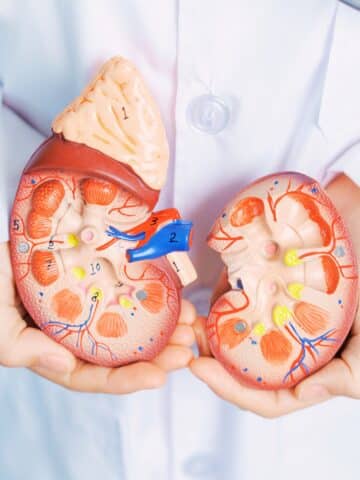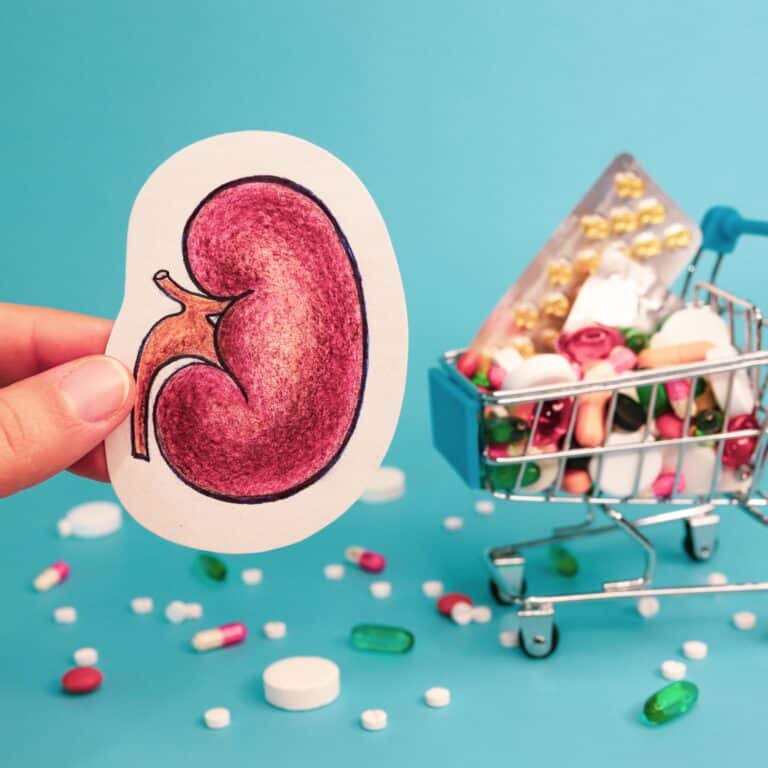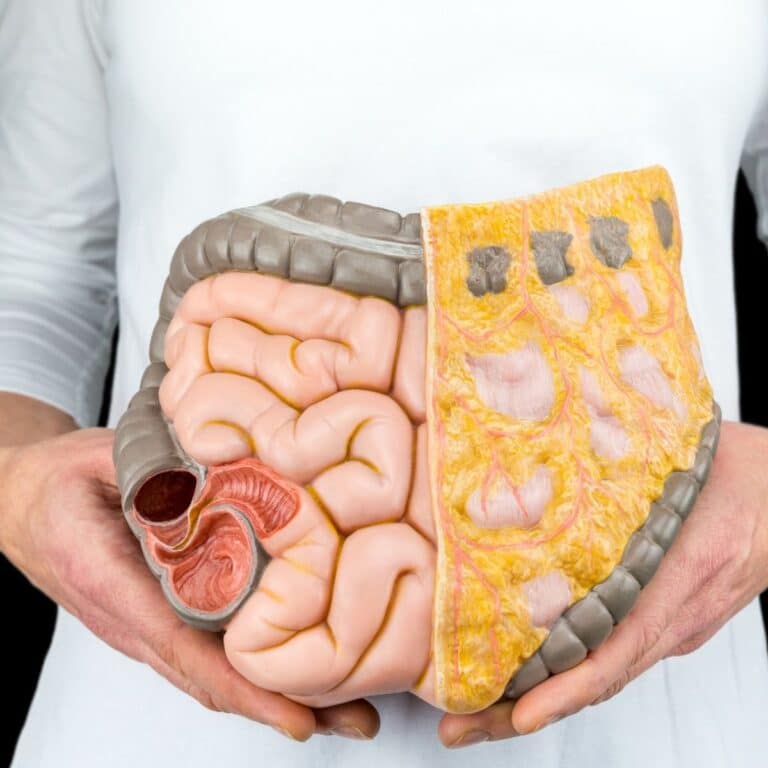Questions About Chronic Kidney Disease
If you or a loved one has been diagnosed with chronic kidney disease (CKD), you likely have questions about the condition and its management. CKD affects millions of people worldwide, and early detection and intervention are critical to slowing its ckd progression.
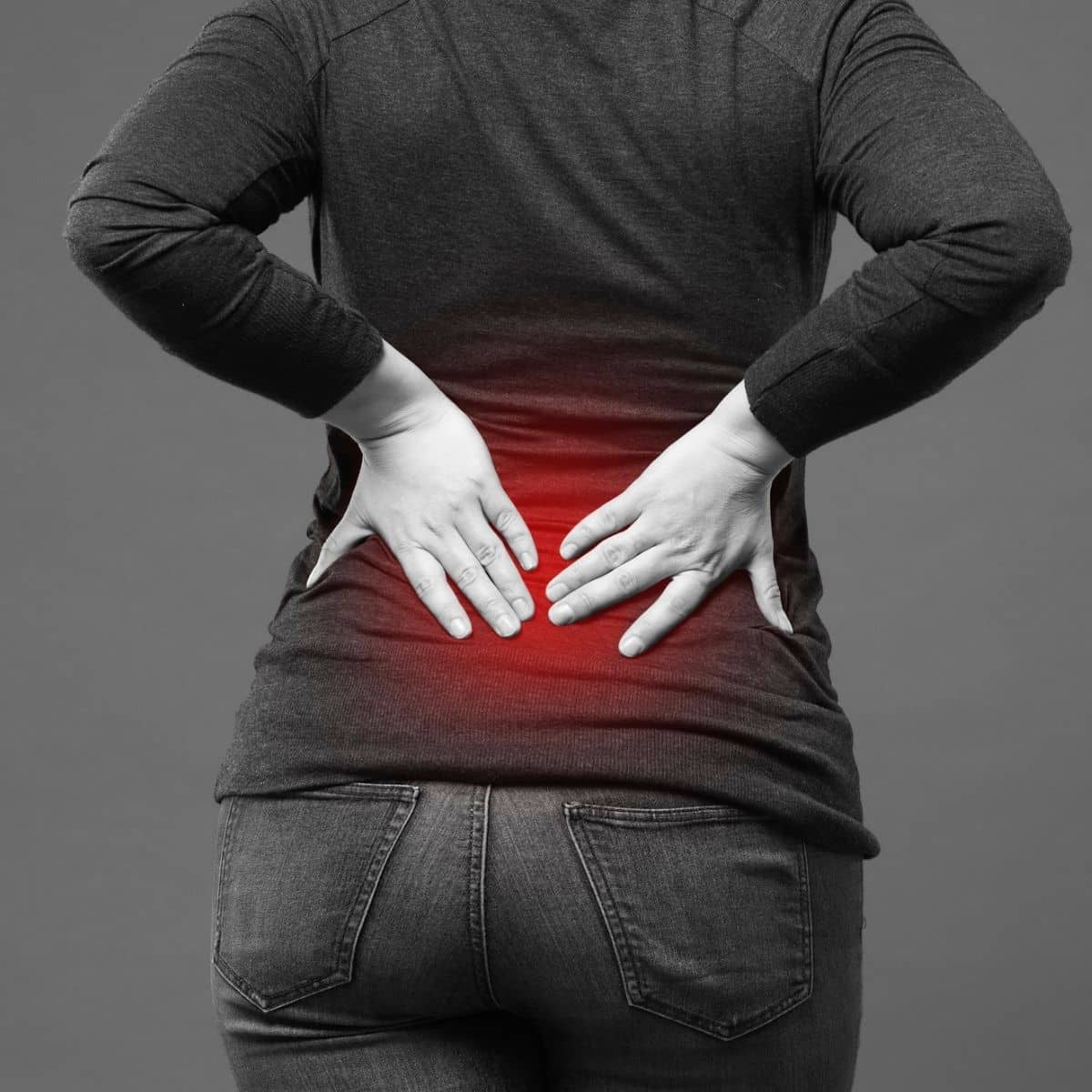
In this article, we will address common questions and topics that may arise when discussing CKD with your healthcare provider.
Jump to:
- Key Takeaways
- What causes chronic kidney disease?
- What are the symptoms of chronic kidney disease?
- How is chronic kidney disease diagnosed?
- How does chronic kidney disease affect the body?
- Can chronic kidney disease be cured?
- What is the life expectancy for someone with chronic kidney disease?
- How can chronic kidney disease be prevented?
- What is the difference between chronic kidney disease and kidney failure?
- How does chronic kidney disease affect the heart?
- How fast does chronic kidney disease progress?
- What medications are used to treat chronic kidney disease?
- What is CKD-MBD?
- How often should I see a doctor if I have chronic kidney disease?
- Can exercise help manage chronic kidney disease?
- Why Does Diet Impact Kidney Disease So Much?
- What Is The Best Way To Maintain A Kidney-Friendly Diet?
- What Happens When You Reach Stage 5 Kidney Disease?
- The More You Know, The Better You Can Manage Your CKD
Key Takeaways
We will cover everything from the causes and symptoms of CKD to medication management and dietary considerations. We'll explore how CKD affects the body, what complications can arise, and how often you should see a doctor if you have the condition.
We'll also discuss whether exercise can help manage CKD. By the end of this article, you'll have a better understanding of what to expect when living with CKD, as well as resources for patients coping with this challenging condition.
- It is important to discuss early stage CKD questions and monitor signs and symptoms of CKD or ESRD with a nephrologist or primary care physician.
- Contributing to kidney care planning involves understanding the stages of CKD, knowing your stage, and taking steps to stay healthy.
- Dietary considerations, such as consulting with a renal dietitian and choosing kidney-friendly foods, are important for managing CKD.
- CKD can be caused by a variety of factors, including diabetes, high blood pressure, glomerulonephritis, inherited diseases, malformations at birth, lupus, obstructions, and repeated urinary tract infections.
For More Recipes and Ideas --->> Get Your Free Meals and Recipes That Are Perfect for Pre-Dialysis Diets, Pre-Dialysis with Diabetes, or Dialysis Diets.
What causes chronic kidney disease?
Chronic kidney disease (CKD) can have multiple causes, and understanding them is essential for recognizing the risk factors and taking preventive measures. There are various factors that contribute to the development of CKD.
One significant cause is diabetes. Uncontrolled or poorly managed diabetes can lead to damage in the blood vessels and nephrons of the kidneys, eventually resulting in CKD. High blood sugar levels over time can have a detrimental impact on kidney function.
Another common cause is hypertension, or high blood pressure. Persistent high blood pressure can damage the blood vessels in the kidneys, affecting their ability to filter waste products and maintain fluid balance. Consequently, this can lead to the progression of CKD.
Certain medical conditions, such as polycystic kidney disease (PKD), can also be a cause. PKD is a genetic disorder characterized by the growth of numerous cysts in the kidneys, impairing their function and leading to CKD.
Other factors that can contribute to the development of CKD include kidney infections, kidney stones, recurrent urinary tract infections, and prolonged obstruction of the urinary tract. These conditions can cause damage to the kidneys and increase the risk of developing CKD.
In addition, certain lifestyle choices and behaviors can be risk factors for CKD. Smoking, excessive alcohol consumption, obesity, and a diet high in salt and processed foods can all increase the likelihood of developing CKD.
It's important to note that the causes of CKD can vary from person to person, and sometimes multiple factors may be involved. It is always advisable to consult with a healthcare professional for an accurate diagnosis and personalized understanding of the underlying causes in your specific case.

What are the symptoms of chronic kidney disease?
Chronic kidney disease can manifest with a range of symptoms, which may vary depending on the stage and severity of the condition. It's important to be aware of these symptoms as they can indicate potential kidney dysfunction.
One common symptom of CKD is fatigue or a general feeling of low energy. As kidney function declines, the body may experience a build-up of waste products and toxins, leading to a sense of tiredness and weakness. However, this symptom is very nonspecific and can be caused by almost any illness.
Another symptom is persistent or recurrent swelling, particularly in the legs, ankles, and feet. This swelling, known as edema, occurs due to the kidneys' reduced ability to remove excess fluid and sodium from the body.
Changes in urine patterns can also be a sign of CKD. You may notice increased or decreased urine output, or changes in the appearance of your urine, such as foamy or dark-colored urine. Additionally, experiencing frequent urination during the night (nocturia) can be a symptom.
High blood pressure (high blood pressure and kidney disease), or hypertension, is both a cause and a symptom of CKD. If you have unexplained or difficult-to-control hypertension, it may indicate underlying kidney damage.
As CKD progresses, you may experience loss of appetite, nausea, and vomiting. The accumulation of waste products in the body can affect your digestive system, leading to these symptoms.
Other potential symptoms include muscle cramps, dry and itchy skin, difficulty concentrating, insomnia, and anemia (low red blood cell count).
It's important to note that these symptoms can also be attributed to other conditions, so it's crucial to consult a healthcare professional for an accurate diagnosis if you experience any of these signs. Early detection and intervention can help slow the progression of CKD and minimize complications.
How is chronic kidney disease diagnosed?
Diagnosing chronic kidney disease (CKD) involves a combination of medical history, physical examination, and various diagnostic tests. The process aims to assess kidney function, identify the underlying cause, and determine the stage of the disease.
Your healthcare provider will start by taking a detailed medical history, including information about your symptoms, family history of kidney disease, and any existing medical conditions or risk factors. This helps in evaluating potential causes and determining the need for further testing.
During a physical examination, your healthcare provider may check for signs of fluid retention, high blood pressure, or other indicators of kidney dysfunction. They may also palpate your abdomen to assess the size and condition of your kidneys.
Diagnostic tests play a crucial role in confirming the diagnosis of CKD. Blood tests are commonly used to measure creatinine and estimate glomerular filtration rate (GFR), which indicates how well your kidneys are functioning. Elevated levels of creatinine and a decreased GFR may suggest kidney damage.
Urine tests, such as a urinalysis, can provide information about the presence of protein, blood, or other abnormalities in your urine. These findings can help in assessing kidney function and identifying potential causes of CKD.
Imaging studies, such as ultrasound, may be conducted to visualize the structure of the kidneys and detect any abnormalities or signs of kidney damage.
In some cases, additional tests like kidney biopsy may be necessary. A biopsy involves taking a small sample of kidney tissue for examination under a microscope to determine the cause and severity of the kidney disease.
It's important to remember that the diagnostic process for CKD should be carried out by a healthcare professional, who will interpret the results and provide a proper diagnosis. If you suspect you may have CKD or are experiencing symptoms, consult your healthcare provider for an accurate assessment and diagnosis.
How does chronic kidney disease affect the body?
The effects of chronic kidney disease (CKD) on your body can be far-reaching and have significant implications for your overall health. One of the primary consequences of CKD is the development of high blood pressure, also known as hypertension. The compromised kidney function leads to an imbalance in fluid and electrolyte regulation, resulting in increased blood pressure levels.
Dealing with kidneys and anemia is another common complication of CKD. The kidneys produce a hormone called erythropoietin, which stimulates the production of red blood cells. When the kidneys are damaged, erythropoietin production decreases, leading to a decrease in red blood cell production and subsequently causing anemia. Anemia can result in fatigue, weakness, and shortness of breath.
Vitamin D deficiency is frequently observed in individuals with CKD. The kidneys play a crucial role in activating vitamin D, which is necessary for maintaining healthy bones and regulating calcium levels. In CKD, impaired kidney function hampers the production of active vitamin D, leading to reduced calcium absorption and potential bone abnormalities.
Hyperparathyroidism is another effect of CKD. The parathyroid glands, located near the thyroid gland, regulate calcium and phosphorus balance. In CKD, the kidneys are unable to maintain proper control over these minerals, leading to elevated parathyroid hormone levels. This can result in bone weakening, calcium deposits in blood vessels, and other complications.
Swelling, or edema, is a common symptom of CKD. As the kidneys lose their ability to remove excess fluid and sodium from the body, fluid retention occurs, leading to swelling, particularly in the legs, ankles, and feet.
These are just a few examples of how CKD can affect your body. It's crucial to work closely with healthcare professionals to manage these effects and minimize their impact on your health and well-being.
As a result of these complications, people with CKD may need to make significant diet modifications to reduce their risk of further damage.
A renal dietitian can help individuals create a kidney-friendly meal plan that includes incorporating favorite foods while avoiding those that could harm the kidneys. Additionally, medication management is crucial in controlling these complications and slowing disease progression.
CKD diagnosis at an early stage is vital for preventing or delaying the development of these complications. Therefore, early detection strategies like routine screening tests are critical in managing CKD effectively.
Mental health support is also essential for individuals living with this chronic condition since it can be emotionally challenging to cope with a diagnosis that requires long-term management through medical interventions and lifestyle changes.
| Complication | Management |
| Anemia | Medications such as ESAs or iron supplements |
| Bone Disease | Calcium/vitamin D supplementation; medications that regulate bone metabolism |
| High Blood Pressure | Lifestyle changes (diet/exercise); medication management |
| Nerve Damage | Lifestyle changes; pain management strategies; counseling/support groups. |
Can chronic kidney disease be cured?
Unfortunately, there's no single medication or treatment (kidney disease treatment diet) that can fully cure CKD and restore normal kidney function. However, there are several options available to manage the disease and slow its progression. It's important to work closely with your healthcare team to develop a personalized treatment plan that addresses your individual needs.
Here are some possible ways to manage CKD:
- Underlying causes and prevention: Addressing underlying conditions such as diabetes and high blood pressure can help prevent or delay the onset of CKD. It's also important to avoid medications that can further damage the kidneys, such as nonsteroidal anti-inflammatory drugs (NSAIDs).
- Treatment options: In advanced stages of CKD, dialysis or kidney transplant may be necessary. However, earlier stages can often be managed through lifestyle modifications and medication management.
- Dietary considerations: A kidney-friendly diet low in sodium, phosphorus, and protein can help alleviate symptoms of CKD and improve overall health. Consulting a renal dietitian can provide guidance on specific dietary changes.
While there is no cure for CKD, managing the disease through a combination of medical interventions and lifestyle modifications can help slow its progression and improve overall health outcomes.
What is the life expectancy for someone with chronic kidney disease?
Determining the life expectancy for someone with chronic kidney disease (CKD) can be complex and depends on various factors. It is important to understand that each individual's situation is unique, and the progression and impact of CKD can vary significantly.
The life expectancy for someone with CKD is influenced by factors such as the underlying cause of CKD, the stage of the disease, the presence of other medical conditions, overall health, adherence to treatment, and response to interventions. For instance, individuals with CKD caused by diabetes or high blood pressure may have different prognoses than those with other causes.
Additionally, the stage of CKD plays a role in life expectancy. In the early stages, with proper management and treatment, the progression of CKD can be slowed or halted, and individuals may live for many years with a good quality of life.
However, as CKD progresses to advanced stages, such as end-stage renal disease (ESRD), life expectancy may be shorter without renal replacement therapies like dialysis or kidney transplantation.
It's essential to note that advancements in medical care, including improved treatments and interventions, have positively impacted the life expectancy of individuals with CKD.
Regular medical monitoring, adherence to treatment plans, and lifestyle modifications can also help manage the condition and potentially extend life expectancy.
Ultimately, it is best to consult with your healthcare provider who can assess your specific situation, consider all relevant factors, and provide a more accurate understanding of your life expectancy with CKD.
How can chronic kidney disease be prevented?
You can take preventive measures to lower your risk of developing chronic kidney disease (CKD). Lifestyle changes are an essential part of preventing or delaying the progression of CKD. One of the most important things you can do is to keep your blood pressure and blood sugar levels under control.
Dietary modifications can also play a crucial role in protecting your kidneys. You should limit your intake of salt, sugar, and processed foods. Consuming more fruits and vegetables can help you maintain a healthy weight, lower your blood pressure, and reduce inflammation.
Regular checkups with your healthcare provider are also important for detecting CKD early on. Your doctor may recommend routine blood tests or urine tests to monitor your kidney function.
Lastly, incorporating exercise routines into your daily life can be beneficial in maintaining overall health and reducing the risk of diabetes, hypertension, obesity, and other conditions that may lead to CKD.
By taking these steps towards prevention, you can protect your kidney health and enjoy a better quality of life.
What is the difference between chronic kidney disease and kidney failure?
Understanding the difference between chronic kidney disease (CKD) and kidney failure is crucial in managing your health.
CKD is a condition where the kidneys are damaged and cannot function properly, leading to a gradual loss of kidney function over time.
In contrast, kidney failure occurs when the kidneys can no longer filter waste products from your blood, causing a buildup of toxins in your body.
Questions about kidney transplant? Treatment options for CKD aim to slow down or halt further damage to the kidneys and manage associated complications such as high blood pressure and anemia.
However, if left untreated or poorly managed, CKD can progress to end-stage renal disease (ESRD), also known as kidney failure. At this stage, treatment options include dialysis or a kidney transplant.
Prognosis factors for CKD include the underlying cause of kidney damage, age, and comorbidities such as diabetes and high blood pressure.
Risk factors for developing CKD include having a family history of kidney disease, being overweight or obese, smoking cigarettes, having cardiovascular disease, or diabetes.
Prevention strategies for CKD involve managing these risk factors by maintaining a healthy weight through regular exercise and proper nutrition while quitting smoking cigarettes if you smoke.
Additionally, controlling pre-existing conditions such as hypertension and diabetes through medication management can help prevent further damage to your kidneys over time.
How does chronic kidney disease affect the heart?
Chronic kidney disease (CKD) can have a profound impact on cardiovascular health, significantly increasing the risk of cardiac complications and cardiovascular disease.
Individuals with CKD face several factors that contribute to these effects, including high blood pressure, anemia, and electrolyte imbalances.
High blood pressure, or hypertension, is both a cause and a consequence of CKD. As kidney function declines, the kidneys have difficulty regulating blood pressure, leading to persistent hypertension.
The continuous strain on the blood vessels and heart can result in conditions such as coronary artery disease, heart attacks, and heart failure. CKD-related hypertension is often resistant to treatment, further exacerbating the cardiovascular risk.
Anemia is a common complication of CKD. The kidneys produce a hormone called erythropoietin, which stimulates the production of red blood cells.
In CKD, the impaired kidney function leads to decreased erythropoietin production, resulting in anemia. This reduces the oxygen-carrying capacity of the blood and forces the heart to work harder to meet the body's oxygen demands.
Electrolyte imbalances, particularly potassium and calcium, can arise in CKD. These imbalances can disrupt the normal electrical signaling in the heart, potentially leading to arrhythmias, palpitations, and cardiac arrest.
Imbalances in calcium levels can also contribute to the development of calcification in the blood vessels, further increasing the risk of cardiovascular disease.
As kidney function declines, there is an increased risk of fluid retention in the body. This fluid buildup can lead to swelling, known as edema, and cause strain on the heart. The heart has to pump harder to circulate the excess fluid, putting additional stress on the cardiovascular system. Later on, this could lead to congestive heart failure.
These effects of CKD on cardiovascular health (heart healthy lifestyle changes for CKD) highlight the importance of regular monitoring and management of cardiovascular risk factors in individuals with CKD. This is especially important since cardiovascular events are the most common cause of mortality in people with kidney disease.
Healthcare professionals play a crucial role in assessing and addressing these complications to minimize the impact on the heart and overall cardiovascular health.
How fast does chronic kidney disease progress?
The speed at which CKD progresses can vary greatly depending on several factors, including underlying health conditions and lifestyle habits.
It is important to understand the progression rate to monitor your kidney function and take appropriate steps to slow down the disease's advancement. Generally, people with diabetes or high blood pressure are at a higher risk of developing CKD and may experience faster progression rates than those without these conditions.
To determine your specific risk factors for CKD progression, your doctor may recommend regular monitoring of your kidney function through lab tests or imaging studies.
Depending on the stage of CKD you are in, treatment options may include medication to control blood pressure and manage other complications related to kidney damage.
Lifestyle modifications such as maintaining a healthy diet and exercise routine can also help slow down the progression of CKD.
Monitoring recommendations for individuals with CKD will depend on their stage of the disease. For example, individuals in earlier stages may only need annual monitoring, while those in later stages may require more frequent testing.
Your doctor will work with you to develop a personalized care plan that includes regular monitoring and appropriate treatment options based on your individual needs and risk factors.
Remember that early detection is key when it comes to managing CKD, so don't hesitate to speak with your healthcare provider if you have concerns about your kidney function.
| Risk Factors | Treatment Options |
| Diabetes | Medication |
| High Blood Pressure | Lifestyle Modifications |
| Smoking | Regular Monitoring |
| Obesity | Dialysis/Transplant |
| Family History | Blood Pressure Control |
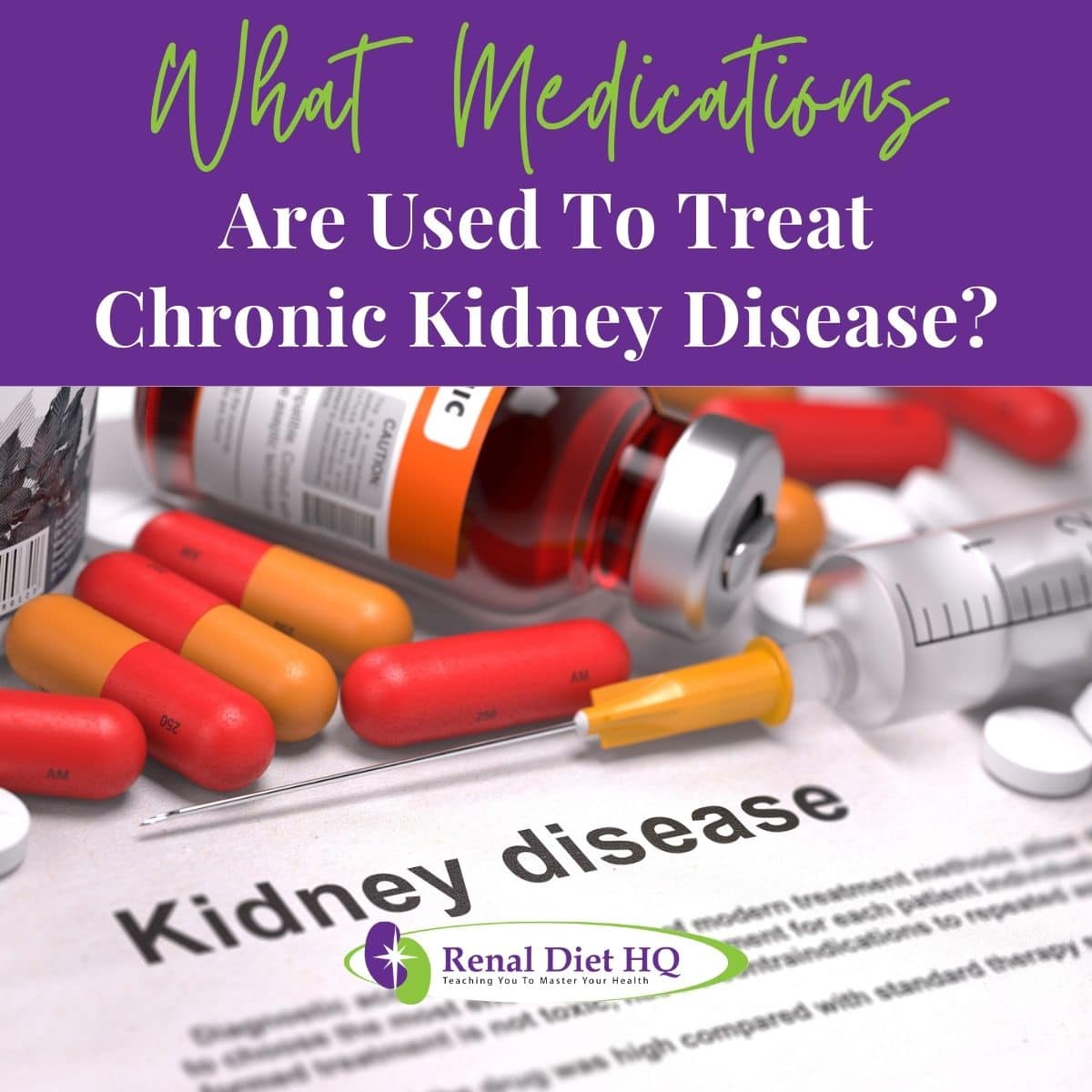
What medications are used to treat chronic kidney disease?
Medications for CKD depend on the underlying cause and stage of the disease. Your nephrologist may prescribe blood pressure medications, such as ACE inhibitors or ARBs, which can help slow the progression of kidney damage. These medications also have additional benefits in managing hypertension and reducing cardiovascular risk.
Aside from blood pressure medications, there are several other medications that may be used to treat chronic kidney disease (CKD) depending on your specific condition and symptoms.
One common medication is erythropoiesis-stimulating agents (ESAs), which are used to treat anemia associated with CKD. ESAs help stimulate the production of red blood cells, improving oxygen delivery and reducing fatigue and weakness.
Phosphate binders are another type of medication often prescribed for CKD. These medications help control high levels of phosphate in the blood, which can occur as the kidneys lose their ability to filter it out. By reducing phosphate levels, phosphate binders help prevent complications such as bone problems and cardiovascular disease.
If you have low levels of vitamin D due to CKD, your doctor may prescribe vitamin D supplements or activated vitamin D analogs. These medications help maintain proper calcium and phosphate levels, supporting bone health.
Diuretics may be prescribed to help manage fluid retention in CKD. They work by increasing urine output and reducing fluid buildup, helping to alleviate symptoms like swelling and shortness of breath.
Depending on the specific complications you may have, medications such as potassium binders, antihyperuricemics, and lipid-lowering agents may also be prescribed to address high potassium levels, elevated uric acid levels, and high cholesterol respectively.
It's important to note that the choice and use of medications in CKD can vary based on individual circumstances and should be determined by your healthcare provider. They will assess your condition, consider your medical history, and prescribe medications tailored to your specific needs.
Remember that some medications may need dosage adjustments as your kidney function declines. Your healthcare provider will monitor your kidney function regularly and make necessary adjustments to your medication regimen.
Additionally, certain medications (commonly prescribed medications for CKD) can have side effects or interact with other drugs you may be taking. Make sure you discuss any concerns or questions about medication options with your healthcare team.
What is CKD-MBD?
One common complication of CKD is CKD-MBD (Chronic Kidney Disease-Mineral and Bone Disorder), which refers to disorders in mineral and bone metabolism that occur as a result of kidney disease.
In CKD-MBD, there is an imbalance in calcium regulation, leading to bone disease and vascular calcification. This condition can cause significant morbidity and mortality among patients with CKD.
Management strategies for CKD-MBD include controlling serum phosphorus levels through dietary restrictions and medications such as phosphate binders.
Additionally, vitamin D supplementation may be necessary to improve calcium absorption from the diet. Parathyroid hormone (PTH) levels should also be monitored and treated with medications if necessary.
Treatment options for severe cases of CKD-MBD include surgical removal of the parathyroid gland or kidney transplantation.
It is important for patients with CKD to work closely with their healthcare team to monitor and manage this complication in order to prevent further complications such as fractures or cardiovascular events.
How often should I see a doctor if I have chronic kidney disease?
Make sure you prioritize your health and schedule regular appointments with a doctor to manage your CKD, so that you can continue living a fulfilling life.
Your doctor will work with you to create a monitoring schedule based on the stage of your CKD and any underlying conditions you may have.
In general, early stages of CKD (food for your stage of chronic kidney disease) may only require annual checkups, while later stages may require more frequent visits.
During these appointments, your doctor will assess your kidney function, blood pressure levels, and medication regimen.
They may also order additional tests or refer you to specialists as needed. It's important to follow up with any recommended treatments or lifestyle changes in between appointments to prevent further damage to your kidneys.
By working closely with your doctor and committing to self-care practices and lifestyle changes, you can improve outcomes for yourself and better manage the progression of CKD.
Can exercise help manage chronic kidney disease?
Regular exercise is a powerful tool that can help you take control of your health and feel empowered in managing your CKD.
Exercise offers numerous benefits for those with chronic kidney disease, including improved cardiovascular health, reduced inflammation, and decreased risk of other comorbidities such as diabetes and high blood pressure.
Before starting an exercise routine, it's important to consult with your healthcare provider to determine what types of exercise are safe for you.
There are many types of exercises that can be incorporated into a fitness routine for individuals with CKD. Low-impact exercises such as walking, biking, swimming or yoga can be effective without putting excessive strain on the kidneys (exercise mistakes to avoid with ckd).
It's also important to consider exercise modifications if needed and gradually increase duration and frequency over time.
Precautions should also be taken to avoid dehydration by drinking plenty of water before and after exercising. It is recommended to at least have 150 minutes per week of moderate-intensity aerobic activity for adults with chronic kidney disease.
However, this may need to be adjusted based on individual needs and limitations. Regular physical activity has been shown to improve overall health outcomes in patients with CKD, so incorporating exercise into daily life can have significant benefits in managing this condition.
Why Does Diet Impact Kidney Disease So Much?
Diet plays a vital role in the management of kidney disease due to the direct impact of food on the kidneys. When you consume food, it undergoes digestion and is broken down into various components that enter your bloodstream.
This means that the quality and composition of your diet directly affect the workload and efficiency of your kidneys.
A kidney-safe diet is designed to reduce the burden on the kidneys by limiting the intake of substances that can be challenging for them to process.
By selecting appropriate foods, you can minimize the accumulation of waste products and byproducts that could potentially harm your kidneys.
Certain dietary factors, such as excessive sodium, potassium, and phosphorus, can pose challenges for individuals with kidney disease.
Sodium can lead to fluid retention and increased blood pressure, while high potassium or phosphorus levels can disrupt the delicate balance of electrolytes in your body. Tips for following a low sodium kidney diet.
Adhering to a kidney-safe diet helps regulate the intake of these substances, promoting better kidney function and reducing the risk of complications.
By following a kidney-safe diet, you have the opportunity to make informed choices about the foods you eat. This typically involves consuming fresh and whole foods while limiting processed and packaged items that may contain high levels of sodium, potassium, and phosphorus.
By working closely with your healthcare team or a registered dietitian, you can create a personalized dietary plan that supports your kidney health and overall well-being.
What Is The Best Way To Maintain A Kidney-Friendly Diet?
The best way to maintain a kidney-friendly diet is through effective meal planning. By creating a well-thought-out meal plan, you can take the guesswork out of your daily food choices and ensure that you consistently follow a kidney-safe diet.
To begin, conduct research and gather information on kidney-friendly recipes and foods. This will help you identify meals that align with your dietary requirements and preferences. Plan your meals for the upcoming days or week, considering a balance of nutrients and low levels of sodium, potassium, and phosphorus.
Once you have your meal plan, it is beneficial to prepare as much as possible in advance. This may involve prepping ingredients, cooking meals in batches, and portioning them out for future consumption.
By taking the time to prepare ahead, you make it easier for yourself to stick to your dietary needs throughout the week. Additionally, having pre-prepared meals and snacks readily available reduces the temptation to deviate from your kidney-friendly diet.
Consider incorporating a variety of fruits, vegetables, lean proteins, whole grains, and healthy fats into your meal plan. Be mindful of portion sizes and choose cooking methods that minimize added salt or sodium.
It can be helpful to consult with a registered dietitian who specializes in kidney health to ensure that your meal plan meets your specific dietary needs.
By implementing effective meal planning strategies, you can establish a routine that supports your kidney health. Having a well-structured plan and pre-prepared meals simplifies the process, making it more likely that you will adhere to your kidney-friendly diet and maintain a healthy lifestyle.
What Happens When You Reach Stage 5 Kidney Disease?
When you reach stage 5 kidney disease, also known as end-stage renal disease (ESRD), it signifies a significant decline in kidney function. At this stage, the kidneys are no longer able to adequately perform their essential functions, resulting in kidney failure.
Kidney failure means that your kidneys are unable to filter waste products and excess fluids from your blood effectively. As a result, harmful substances can accumulate in your body, leading to various complications and imbalances.
To replace the lost kidney function in stage 5 kidney disease, there are two main treatment options: kidney transplantation or dialysis.
Kidney transplantation involves receiving a healthy kidney from a donor, either from a living or deceased individual, to replace the failed kidneys. This procedure offers the potential for long-term improvement in kidney function and an improved quality of life.
Alternatively, dialysis is a medical procedure that involves artificially filtering waste products and excess fluids from your blood. There are two primary types of dialysis: hemodialysis and peritoneal dialysis.
Hemodialysis uses a machine to filter the blood, typically performed at a dialysis center, while peritoneal dialysis involves using the lining of your abdomen to filter the blood, usually done at home.
Both transplantation and dialysis are crucial in managing stage 5 kidney disease as they aim to replace the essential functions of the kidneys and support overall health and well-being. The choice between the two options depends on various factors, including your overall health, lifestyle, and availability of suitable donors.
It's important to work closely with your healthcare team to determine the most suitable treatment approach for your specific circumstances. They will guide you through the process, provide necessary support, and help you make informed decisions regarding your treatment options for stage 5 kidney disease (improve my stage of CKD).
The More You Know, The Better You Can Manage Your CKD
It is said that knowledge is often the best weapon to combat any enemy, and that is certainly true when it comes to your health.
The knowledge you can gain about chronic kidney disease, for example, could be the difference between a short and uncomfortable life, and a long and healthy one.
Use this knowledge to take the best care of yourself possible, and talk to your doctor about chronic kidney disease.


